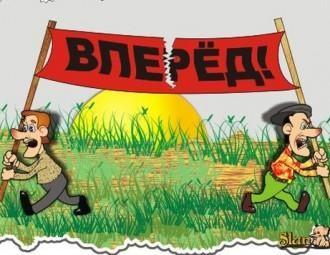Andrei Yahorau: Brussels witnessed discordant opinions, not real dialog

The conference devoted to the initiative “European dialog on modernization” (EDM), that took place on April 9 in Brussels, reminded of “dissention in dialog”.
This opinion in the talk with the EuroBelarus Information Service shared the participant of the event Andrei Yahorau, political scientist and Director of the Centre for European transformation.
He noted that different political players are involved in the dialog on modernization in different ways and hold rather different standpoints. For instance, Elena Kupchina, deputy minister for the Belarusan Foreign Ministry who was in Brussels at that time, didn’t participate in this conference, which, on the whole, corresponds to the position of the Belarusan government that doesn’t participate in the “dialog”.
“Dissention in dialog”
Belarusan opposition parties and movements had broad representation at the conference. “As these organizations don’t take active participation in the “dialog” (though they could and should have participated), it means they have nothing to say about EDM. That is why their positions about the things that bother them either echoed, or claimed that their prejudices are the real processes within the initiative”, - commented Andrei Yahorau.
He noted that only representatives of the Belarusan civil society managed to keep up the conversation on the “European dialog on modernization”.
Similar situation appeared among the EU representatives, people with different level of involvement in the issue of EDM. “This situation with presentation of discordant opinions, not real dialog was reflected in the course of the conference”, - noted Andrei Yahorau.
Nevertheless, the expert admitted that the conference can be considered a success. All the more that it was the first event devoted to the EDM initiative itself and the ways to develop this initiative during the year of “Dialog on modernization” existence.
Talking without digressions
Speaking about the problems discussed during the conference, Andrei Yahorau pointed out the multilateral nature of the initiative. “It means that different players who discuss the problems of modernization and responsibility for the realization of these modernization reforms should be present in this dialog”, - explained the CET Director.
During event it was also noted that the structure EDM has today requires certain development and change. “I was literally talking about the need of a greater number of public stakeholders, as well as about the change in structure of subject groups that work in the dialog. Besides, some extra expert groups that consist of professionals and are involved in research of the spheres to be reformed to suggest specific projects of development should be assigned beforehand”, - told Andrei Yahorau.
The fact that up to this time European dialog is a pure volunteer initiative wasn’t left over, too. “It doesn’t have any systematic support. And all the experts that are working in the EDM work as volunteers, and the projects are run with the resources provided by volunteers, too. This initiative gets minimal financial support from the EU, - explained Andrei Yahorau. – And we can say that on the next level such help from the EU will we rendered. It means that some other, more specific processes, aimed at the real work to prepare reforms can be launched.
“Dialog” for the Belarusans
Well, the political scientist thinks that the main idea that was voiced at the conference is about the request for the “European dialog on modernization” to come from the Belarusans themselves, to be led by Belarusans and for Belarusans. “It means that Belarusans are the main representatives in the EDM. This is what was heard from the Europeans”, - highlighted Andrei Yahorau.
But in reality we witness somewhat different: Belarusan side (opposition, civil society, the state) shows more latent activity in dialog’s promotion. “Besides, even the alternative part of the society can’t coordinate their stance on “the European dialog on modernization”, so some actions of the politicians arouse genuine interest”, - stated Andrei Yahorau, speaking about the joint statement of the leaders from the movement “For Freedom”, “Tell the Truth” civil campaign and the BPF Party. He explained that the statement was made without unifying stance with broader circle of players ready to such unification, with the National Platform of the Civil Society Forum, for instance.
“Dialog” – separately, imitating activity – separately
According to the political scientist, the situation where some abstract statements of the politicians instead of the essence of the “Dialog on modernization” are discussed publicly can be averted only with the competence of the news consumers.
“People who try to get some knowledge about this process should understand that politicians who show no activity during the year in the EDM have to feign this activity”, - highlighted Andrei Yahorau.
He noted that parallel processes that are going on with absolutely different reasoning are at stake: on the one hand, political forces are engaged in maintaining their fame, on the other hand – the discussion of the “Dialog on modernization” problems where these forces don’t take part is going on.
“There is one process which it is not very intense; nevertheless, it has progressed over the year. And there are attempts to use this process driven by absolutely other forces to gain some profit for themselves. I should say that it looks not very appropriate”, - announced Andrei Yahorau.
-
03.01
-
07.10
-
22.09
-
17.08
-
12.08
-
30.09








































